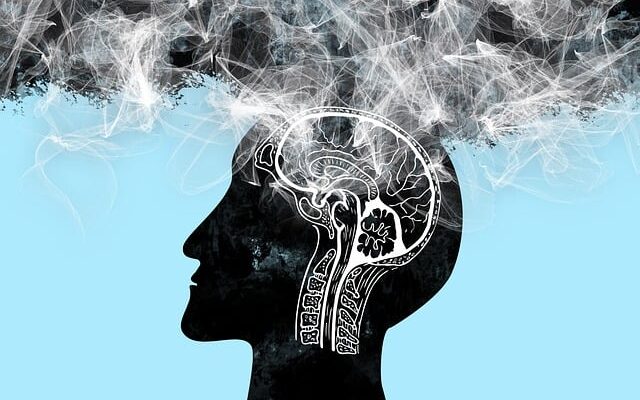January 24, 2023 Imphal By Banti Phurailatpam:
In the realm of cognitive disorders, the terms Alzheimer’s and dementia are often used interchangeably, leading to confusion. However, a nuanced understanding reveals that while they are related, they refer to distinct conditions. In this exploration, we unravel the intricacies of Alzheimer’s and dementia, shedding light on the differences that define these conditions in 2024.
Contents
- 1 Defining Dementia: A Broad Spectrum of Cognitive Impairment
- 2 Alzheimer’s Disease: A Specific Form of Dementia
- 3 Onset and Progression: Variability Across Different Forms
- 4 Memory Loss: A Common Thread in Both Conditions
- 5 Cognitive Function: Understanding the Scope of Impairment
- 6 Behavioral Changes: Distinguishing Features
- 7 Diagnostic Challenges: Navigating the Complexity
- 8 Treatment Approaches: Tailoring Strategies to the Condition
- 9 Caregiver Challenges: Nurturing Support for Individuals and Families
- 10 Research Frontiers: Advancements in Understanding and Treatment
- 11 Conclusion: A Holistic Understanding for Informed Care
Defining Dementia: A Broad Spectrum of Cognitive Impairment
The term dementia refers to a broad range of cognitive impairments that cause difficulties in day-to-day functioning. The term dementia refers to a broad range of cognitive impairments that cause difficulties in day-to-day functioning. It is not a specific disease but rather a syndrome characterized by a decline in cognitive function, affecting memory, reasoning, and communication skills. Dementia can result from various causes, including Alzheimer’s disease, vascular dementia, and frontotemporal dementia.
Alzheimer’s Disease: A Specific Form of Dementia
Alzheimer’s disease, on the other hand, is a specific form of dementia, representing the most common cause of cognitive decline. It makes up a sizable portion of dementia cases. Alzheimer’s is characterized by the accumulation of amyloid plaques and tau tangles in the brain, leading to the progressive degeneration of brain cells and cognitive function.
Onset and Progression: Variability Across Different Forms
One key difference lies in the onset and progression of these conditions. Dementia can result from various factors, including vascular issues, traumatic brain injuries, or underlying health conditions. Its onset may be sudden or gradual, depending on the root cause. In contrast, Alzheimer’s disease typically manifests gradually, with a slow decline in cognitive abilities over time.
Memory Loss: A Common Thread in Both Conditions
Memory loss is a hallmark symptom that ties Alzheimer’s and dementia together. In both cases, individuals may experience difficulty remembering recent events, names, or faces. However, the extent and nature of memory loss can vary. Alzheimer’s tends to exhibit a more profound and progressive memory decline compared to some other forms of dementia.
Cognitive Function: Understanding the Scope of Impairment
While both Alzheimer’s and dementia involve cognitive impairment, the specific aspects affected can differ. Dementia can impact a broad range of cognitive functions, including memory, language, problem-solving, and attention. In Alzheimer’s disease, the focus is primarily on memory and learning deficits in the early stages, gradually expanding to other cognitive domains as the condition progresses.
Behavioral Changes: Distinguishing Features
Behavioral changes are common in both Alzheimer’s and dementia, but the nature of these changes can provide clues to the underlying condition. Individuals with Alzheimer’s may exhibit increased confusion, disorientation, and difficulty completing familiar tasks. Dementia, depending on its cause, can lead to a spectrum of behaviors, including agitation, aggression, and personality changes.
Diagnosing Alzheimer’s and dementia requires a comprehensive evaluation, including medical history, cognitive assessments, and sometimes imaging studies. Distinguishing between various forms of dementia can be challenging, requiring specialized expertise. Advances in diagnostic tools, including brain imaging and biomarker studies, contribute to more accurate differentiation.
Treatment Approaches: Tailoring Strategies to the Condition
While there is no cure for either Alzheimer’s or dementia, treatment approaches can help manage symptoms and improve quality of life. Medications such as cholinesterase inhibitors are commonly prescribed for Alzheimer’s, targeting neurotransmitter imbalances. In dementia, treatment focuses on addressing the underlying cause, whether it be vascular issues, infections, or other contributing factors.
Caregiver Challenges: Nurturing Support for Individuals and Families
Both conditions pose significant challenges for individuals and their caregivers. The progressive nature of Alzheimer’s and certain forms of dementia requires ongoing support and adjustments to caregiving approaches. Education, community resources, and support groups play a crucial role in assisting caregivers as they navigate the complexities of providing care.
Research Frontiers: Advancements in Understanding and Treatment
In 2024, ongoing research seeks to unravel the intricacies of Alzheimer’s and dementia, exploring genetic factors, molecular mechanisms, and potential therapeutic interventions. Advances in precision medicine and personalized treatment approaches hold promise for tailoring strategies based on an individual’s specific condition and characteristics.
Conclusion: A Holistic Understanding for Informed Care
In unraveling the difference between Alzheimer’s and dementia, a nuanced understanding emerges, guiding both medical professionals and families in providing informed care. Recognizing the distinctive features of each condition is essential for accurate diagnosis, tailored treatment, and compassionate support. As we navigate the complex landscape of cognitive disorders in 2024, a holistic approach that encompasses medical, social, and emotional aspects remains pivotal in enhancing the lives of those affected by these conditions.
